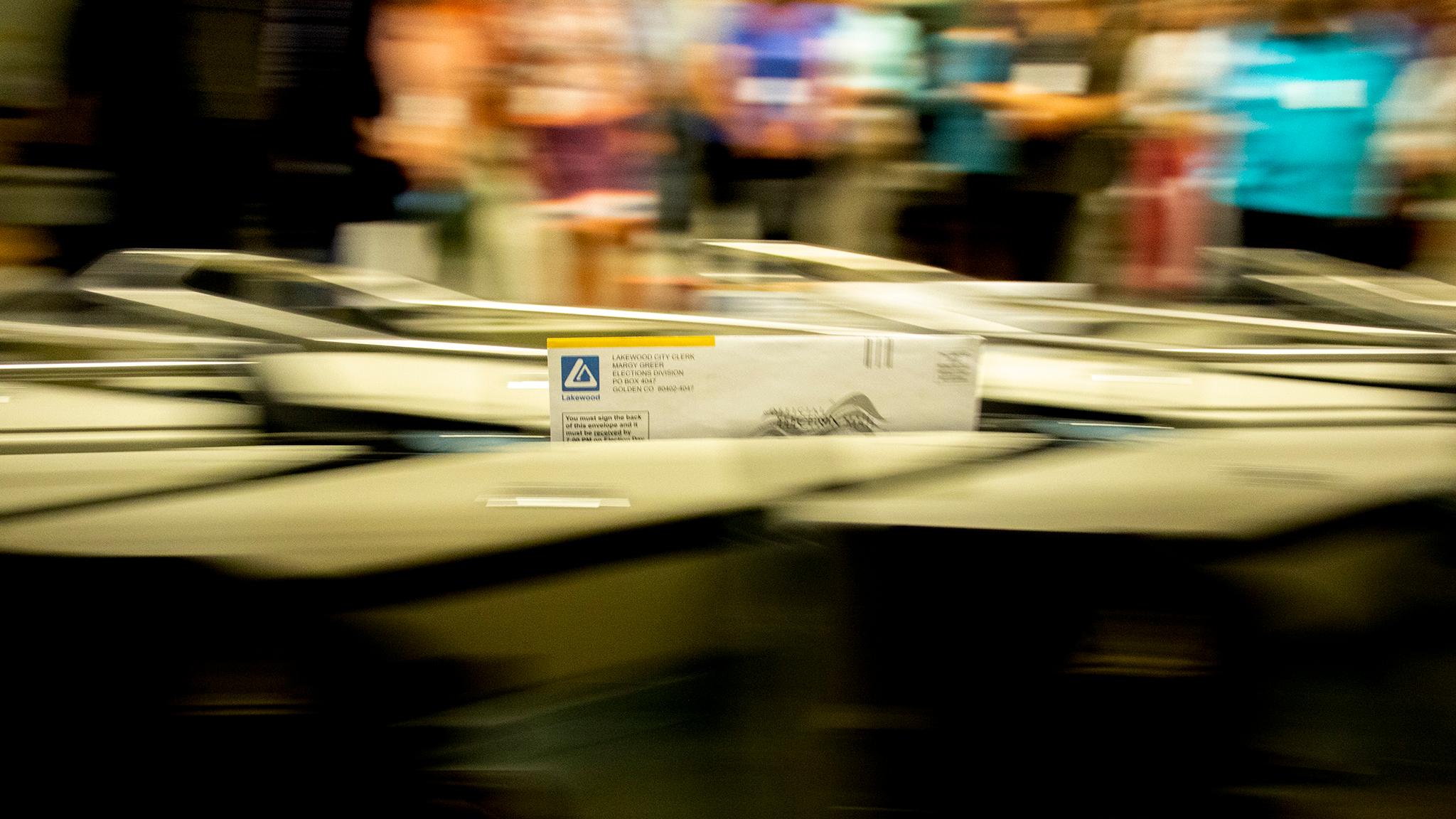
Arapahoe County needed three days to finish counting ballots after election night, despite relatively light participation in the 2019 off-year election.
Denver needed nearly two, and many of the state’s most populated counties needed more than one.
Get used to it.
The advent of at-home voting has led to longer processing and count times for elections clerks. As more states move toward systems like Colorado’s, the nation’s elections supervisors say voters can expect to wait days — even a week — to learn the outcomes of closely contested races.
“What's important to us is that our elections are accessible, that they're secure and that tabulation is done accurately and with integrity,” Colorado Secretary of State Jena Griswold said. “The time it takes to count ballots is really a product of our election model.”
Oregon, Washington and Colorado are the only states in the country that automatically mail ballots to all registered voters. But they won’t be alone for long. In 2020, Hawaii and Utah will also adopt all-mail elections, and California counties are moving that way too.
According to the National Conference of State Legislatures, 28 states and Washington D.C. also let people request absentee ballots without requiring an explanation, essentially creating a mail-in option.
Michigan, Pennsylvania and Rhode Island are the three states that have added this option since the 2016 presidential election.
“It’s been a slow growth of states that are offering pre-election day voting and it continues to grow,” said Wendy Underhill, the director of elections and redistricting at NCSL. She doesn't “imagine that we'll necessarily get to 50 states” as some legislators around the country aren’t enthusiastic about increasing absentee or mail ballot voting.
Colorado has had a few issues with ballots.
In 2018, 60,000 ballots sat on a delivery truck and were delayed getting to voters in Adams County. In the most recent November election, Adams County again saw ballots mailed out with incorrect information. Some replacement ballots in Denver and Arapahoe counties also didn’t reach voters until Election Day.
But by and large, election officials in Colorado like the current system — even if it does take longer to process mail ballots.
At the same time, it's the slow counts that may have caused the most anxiety.
“Our voter model means you may not have election results by the time you go to bed,” said Jocelyn Bucaro, the director of elections for the city and county of Denver.
Bucaro said 70,000 ballots still had to be processed after Tuesday, Nov. 5, largely because so many people dropped off ballots after 5 p.m. on Election Day. The city finished counting ballots two days later on Thursday afternoon.
Boulder finished Wednesday night, the day after the election.
These delays occur when clerks have to verify the signatures on every ballot dropped off or otherwise received on election day. In other states with non-mail elections, that verification typically takes place at the school, library or community center where votes are cast, reducing processing time when polls close.
Here, that verification takes place at the processing center.
“That's how we know the person returning the ballot is legally entitled to vote,” said former Republican Secretary of State Wayne Williams. “If there's questions on it that requires a second-level review, that always has bipartisan judges, both Democrats and Republicans. That's a process that takes time. You wanna make sure you get it right. You can't begin anything else in the process until that signature is verified.”
In addition to signature verification, some of those late-returned ballots need additional care before the votes they contain can be counted.
“We spend a lot of time working with ballots that are damaged or where voters do not follow instructions. Coffee, wine, paw prints,” Boulder County Clerk and Recorder Molly Fitzpatrick said. “All of that can impact the scanning process. There are voters who will make a mistake on their ballot and then what they'll do is cross out their mistake and they'll initial by it or they'll sign right by it. We would duplicate that ballot.”
Colorado also allows for in-person voting on Election Day and same-day voter registration. Elected officials from both parties say they’re proud of the state’s system and the many options it gives voters, as well as the state having the country’s second-highest rate of voter participation.
But a downside of those options means winners aren’t necessarily declared on election night. Voters have to be prepared for that.
“People expect to know on election night, just the general public,” said Democratic House Majority Leader Alec Garnett.
The Majority Leader sponsored Proposition DD, which legalized sports betting and created a tax on casinos to benefit water projects. The bipartisan measure eventually passed, but on election night it was too close to call, especially with so many ballots uncounted and still being processed.
“Everyone I've talked to has said, ‘Oh my gosh, it was so close. It like barely, barely, barely won,’” he said. “And the reality is, as those Election Day ballots were counted, the margin continued to grow to a point where it was over 2 percent. The margins change substantially the next day.”
Elections that stretch on for several days are the new normal, he said.
“If that's the direction we're all going, and in the end, people aren't celebrating on election night. They're celebrating a day later, once we know everything's been counted, and been counted accurately, then that's OK,” Garnett said.
And if voters do want results to come in earlier, clerks say it’s in their own hands — don’t procrastinate. Turn that ballot in sooner.
“We can begin processing 15 days before Election Day,” Fitzpatrick said. “So that's always great. But ultimately the most important thing is people vote.”









